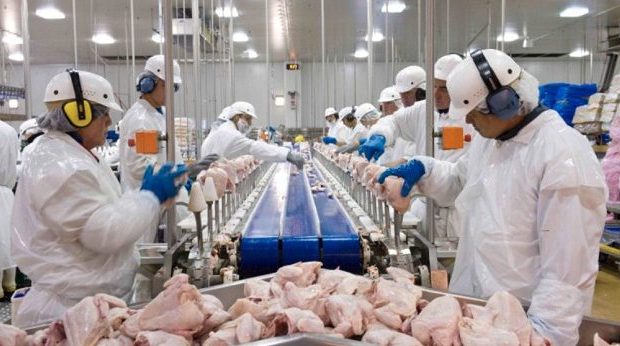Counties look to fill void left by Tyson Foods closing
Published 4:47 am Saturday, June 3, 2023
|
Getting your Trinity Audio player ready...
|
CUMBERLAND – The numbers just don’t look good for anyone. When Tyson Foods closed its processing plant in Glen Allen on May 12, it affected 55 farmers in 13 counties. But the impact stretched beyond the farmhouse. Dozens of other businesses in Prince Edward, Cumberland and other counties, groups that provided supplies and resources for the plant also took a hit. The question now is what happens next, both for family farms and other businesses involved.
It’s a situation that’s drawn several groups together. Officials from seven counties are discussing options with a number of state departments, to see how they can keep local farmers afloat. When Tyson made the announcement back in March, they gave farmers two options. Option one, they could take a lump sum buyout of their contract. Option two was to have that buyout spread over a period of time, even to the end of their signed contract. But regardless of how it was paid out, this was still just a one-time payment. The Herald reached out to farmers in Cumberland and Prince Edward counties, but all of them declined to go on record, saying they were concerned talking about the deal would affect their buyouts somehow.
Local and state officials say they hear that loud and clear. The question just remains as to what’s the best way to help.
“Currently, our local farmers, many of whom are generational poultry producers, have been given few opportunities on how to close their business relationship with Tyson Foods,” said Brian Stanley. He serves as chairman for the Cumberland County Board of Supervisors. “Their entire livelihoods are at stake as they struggle to make this decision.”
Speaking at the board’s May 9 meeting, Stanley said he and other local leaders have looked at a number of options. The same goes for state officials.
”Since Tyson Foods announced the closure of their processing facility in Glen Allen, staff from the Virginia Department of Agriculture and Consumer Services (VDACS), Virginia Economic Development Partnership (VEDP), and Virginia Employment Commission have met with employees, growers, industry stakeholders and county officials to provide resources and aid in determining next steps,” said Michael Wallace. He’s the director of communications for the Virginia Department of Agriculture.
An option beyond Tyson Foods
One idea that’s been repeatedly brought up is to simply replace the Tyson plant with a different one.
“Leaders from Nottoway, Cumberland, Amelia, Buckingham, Charlotte, Lunenberg, and Prince Edward counties have expressed interest in recruiting a poultry complex to the region,” Wallace said. “VDACS and VEDP are assisting the localities in gathering specifics for potential sites and reaching out to prospective poultry companies across the country to determine their interest in locating to Virginia.”
The main problem with recruiting a company involves the requirements a facility like the Tyson plant needs. Space isn’t an issue. The situation comes down to water. Fortunately, a recent expansion project in Prince Edward could help with that.
“You’re talking a million, million and a half gallons of water a day, plus sewage treatment,” said Prince Edward County Administrator Doug Stanley. “Sandy River could potentially be a source of water. Now we’d still have to partner up with the town (of Farmville) on sewage, but it’s possible.”
When he says Sandy River, he’s referring to the Sandy River Reservoir. The slight tax increase approved this spring in Prince Edward was divided between two big projects, school repair and expansion of the reservoir. That removes one of the potential problems flagged by companies. So far, Doug says he’s been providing information for zoning requirements and answering questions, in terms of what Prince Edward and the region could provide.
“When you look around the region, Sandy River and maybe Blackstone would be the only (water sources) capable of handling (the need),” Doug said. “Prince Edward doesn’t have the number of growers an Amelia or Nottoway has, but we do have some. We want to help any way we can.”
What happens next?
Now it’s just a question of if a company finds the opportunity and location attractive enough to move here. In the meantime, officials from all seven counties have said they’re open to any other proposals, if a company or group wants to bring one in.





